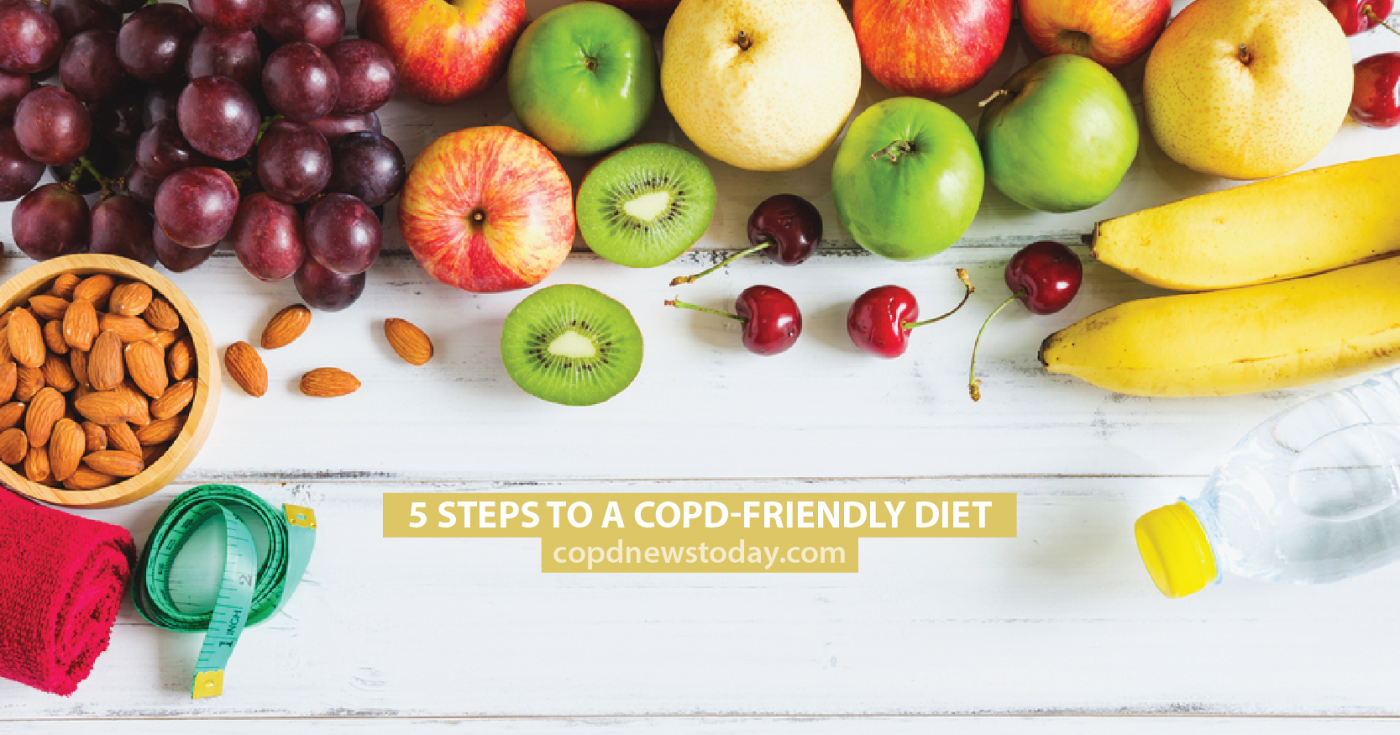5 Steps to a COPD-Friendly Diet
Written by |

As with many chronic diseases, diet can have a profound effect on symptoms—either exacerbating them or helping manage them. Eating a healthy, balanced diet is important but what are the nutritional needs for someone who has chronic obstructive pulmonary disease (COPD)? We’ve come up with five steps to help you improve your diet with COPD using information from the Lung Institute and everydayhealth.com.
Eat Plenty of Protein
Protein is essential for a healthy diet and helps to build muscle as well as create vital antibodies needed to fight off infections. Low fat meats and fish are great sources of protein, but protein can also be found in eggs, nuts, tofu, spinach, and quinoa (Source: Care2.com)
Make Sure You Get Plenty of Vitamin D
Vitamin D comes primarily from the sun, but if you don’t live in a warm climate, or just don’t want to sit out in the sun then you’ll need to get your vitamin D stock from food. Good foods for vitamin D include milk, cheese, salmon, fortified cereals, mushrooms and tofu.
MORE: Ten signs and symptoms of COPD.
Get Fishy
As well as being a great source of protein, choosing fish over red meats can help lower cholesterol and fat in your diet and up levels of vitamin D and omega 3. Try to buy non-farmed fish if possible and grill or bake rather than fry for maximum nutritional value.
Drink Lots of Water
Keeping hydrated helps keep mucus in the lungs thinner and easier to shift. You should aim to drink about a half gallon of water each day, more if you exercise or it’s hot outside. You can flavor your water with fruits or cucumber and mint if you find it too bland on its own.
Avoid Processed Food
A healthy balanced diet should ideally consist of whole foods and ingredients that are natural. Processed foods contain harmful chemicals, high levels of salt and sugar, and are generally lacking in any nutrients your body really needs.
MORE: Six tips for protecting your lungs.
COPD News Today is strictly a news and information website about the disease. It does not provide medical advice, diagnosis or treatment. This content is not intended to be a substitute for professional medical advice, diagnosis, or treatment. Always seek the advice of your physician or another qualified health provider with any questions you may have regarding a medical condition. Never disregard professional medical advice or delay in seeking it because of something you have read on this website.




